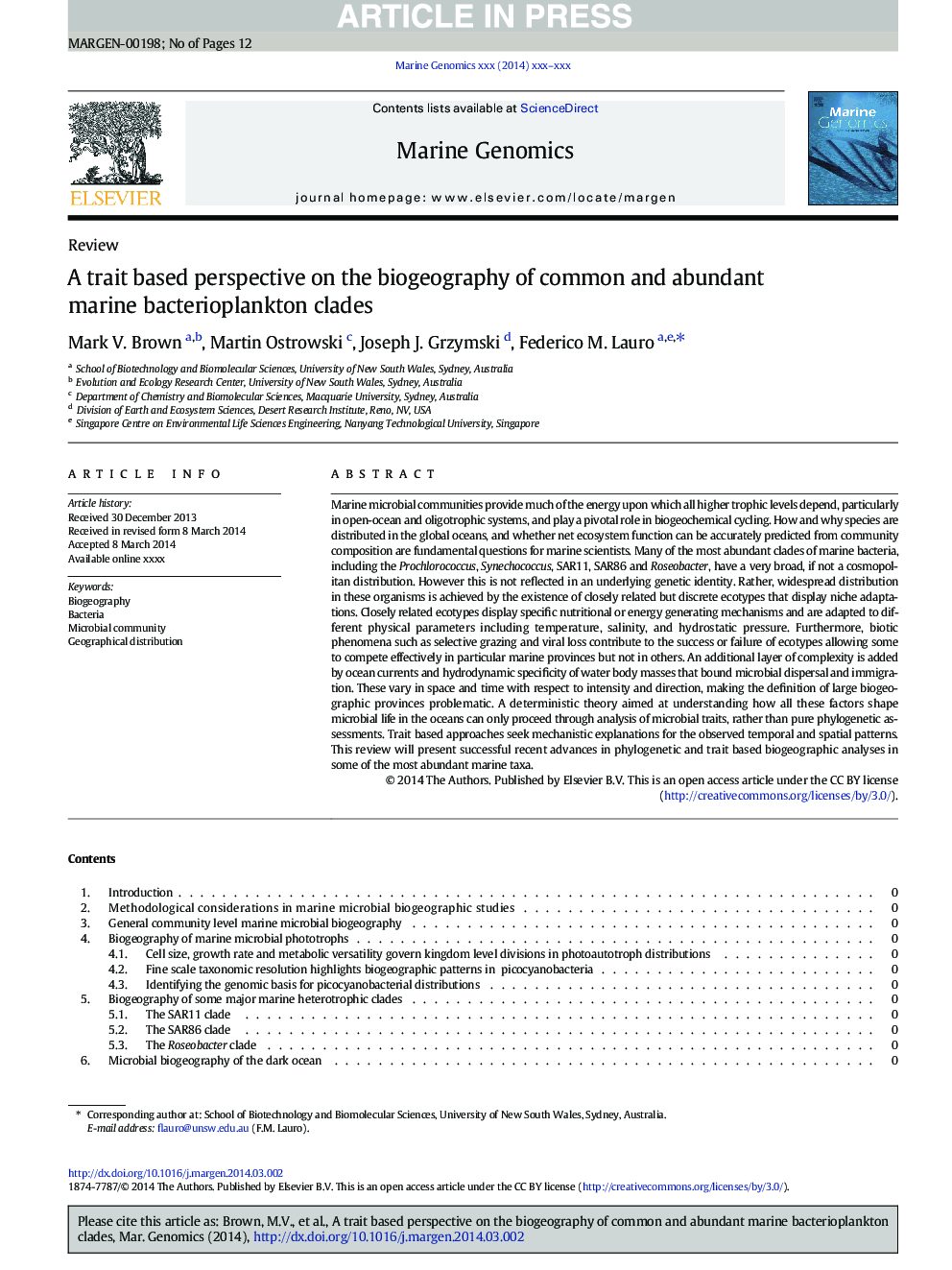| Article ID | Journal | Published Year | Pages | File Type |
|---|---|---|---|---|
| 8388640 | Marine Genomics | 2014 | 12 Pages |
Abstract
Marine microbial communities provide much of the energy upon which all higher trophic levels depend, particularly in open-ocean and oligotrophic systems, and play a pivotal role in biogeochemical cycling. How and why species are distributed in the global oceans, and whether net ecosystem function can be accurately predicted from community composition are fundamental questions for marine scientists. Many of the most abundant clades of marine bacteria, including the Prochlorococcus, Synechococcus, SAR11, SAR86 and Roseobacter, have a very broad, if not a cosmopolitan distribution. However this is not reflected in an underlying genetic identity. Rather, widespread distribution in these organisms is achieved by the existence of closely related but discrete ecotypes that display niche adaptations. Closely related ecotypes display specific nutritional or energy generating mechanisms and are adapted to different physical parameters including temperature, salinity, and hydrostatic pressure. Furthermore, biotic phenomena such as selective grazing and viral loss contribute to the success or failure of ecotypes allowing some to compete effectively in particular marine provinces but not in others. An additional layer of complexity is added by ocean currents and hydrodynamic specificity of water body masses that bound microbial dispersal and immigration. These vary in space and time with respect to intensity and direction, making the definition of large biogeographic provinces problematic. A deterministic theory aimed at understanding how all these factors shape microbial life in the oceans can only proceed through analysis of microbial traits, rather than pure phylogenetic assessments. Trait based approaches seek mechanistic explanations for the observed temporal and spatial patterns. This review will present successful recent advances in phylogenetic and trait based biogeographic analyses in some of the most abundant marine taxa.
Related Topics
Physical Sciences and Engineering
Earth and Planetary Sciences
Earth and Planetary Sciences (General)
Authors
Mark V. Brown, Martin Ostrowski, Joseph J. Grzymski, Federico M. Lauro,
